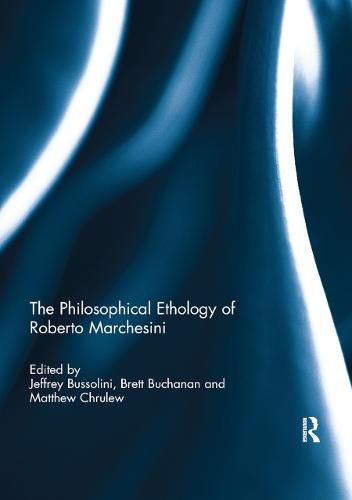Readings Newsletter
Become a Readings Member to make your shopping experience even easier.
Sign in or sign up for free!
You’re not far away from qualifying for FREE standard shipping within Australia
You’ve qualified for FREE standard shipping within Australia
The cart is loading…






Roberto Marchesini is an Italian philosopher and ethologist whose work is significant for the rethinking of animality and human-animal relations. Throughout such important books as Il dio Pan (1988), Il concetto di soglia (1996), Post-human (2002), Intelligenze plurime (2008), Epifania animale (2014), and Etologia filosofica (2016), he offers a scathing critique of reductive, mechanistic models of animal behaviour, as well as a positive contribution to zooanthropological and phenomenological methods for understanding animal life.
Centred on the dynamic and performative field of interactions and relations in the world, his critical and speculative approach to the cognitive life sciences offers a vision of animals as acting subjects and bearers of culture, whose action and agency is also indispensable to human culture. In tracing the ways in which we share our lives and histories with animals in different contexts of interaction, Marchesini’s cutting-edge philosophical ethology also contributes to an overarching philosophical anthropology of the human as the animal that most requires the present and input of other animals. This book was originally published as a special issue of Angelaki: Journal of the Theoretical Humanities.
$9.00 standard shipping within Australia
FREE standard shipping within Australia for orders over $100.00
Express & International shipping calculated at checkout
Roberto Marchesini is an Italian philosopher and ethologist whose work is significant for the rethinking of animality and human-animal relations. Throughout such important books as Il dio Pan (1988), Il concetto di soglia (1996), Post-human (2002), Intelligenze plurime (2008), Epifania animale (2014), and Etologia filosofica (2016), he offers a scathing critique of reductive, mechanistic models of animal behaviour, as well as a positive contribution to zooanthropological and phenomenological methods for understanding animal life.
Centred on the dynamic and performative field of interactions and relations in the world, his critical and speculative approach to the cognitive life sciences offers a vision of animals as acting subjects and bearers of culture, whose action and agency is also indispensable to human culture. In tracing the ways in which we share our lives and histories with animals in different contexts of interaction, Marchesini’s cutting-edge philosophical ethology also contributes to an overarching philosophical anthropology of the human as the animal that most requires the present and input of other animals. This book was originally published as a special issue of Angelaki: Journal of the Theoretical Humanities.